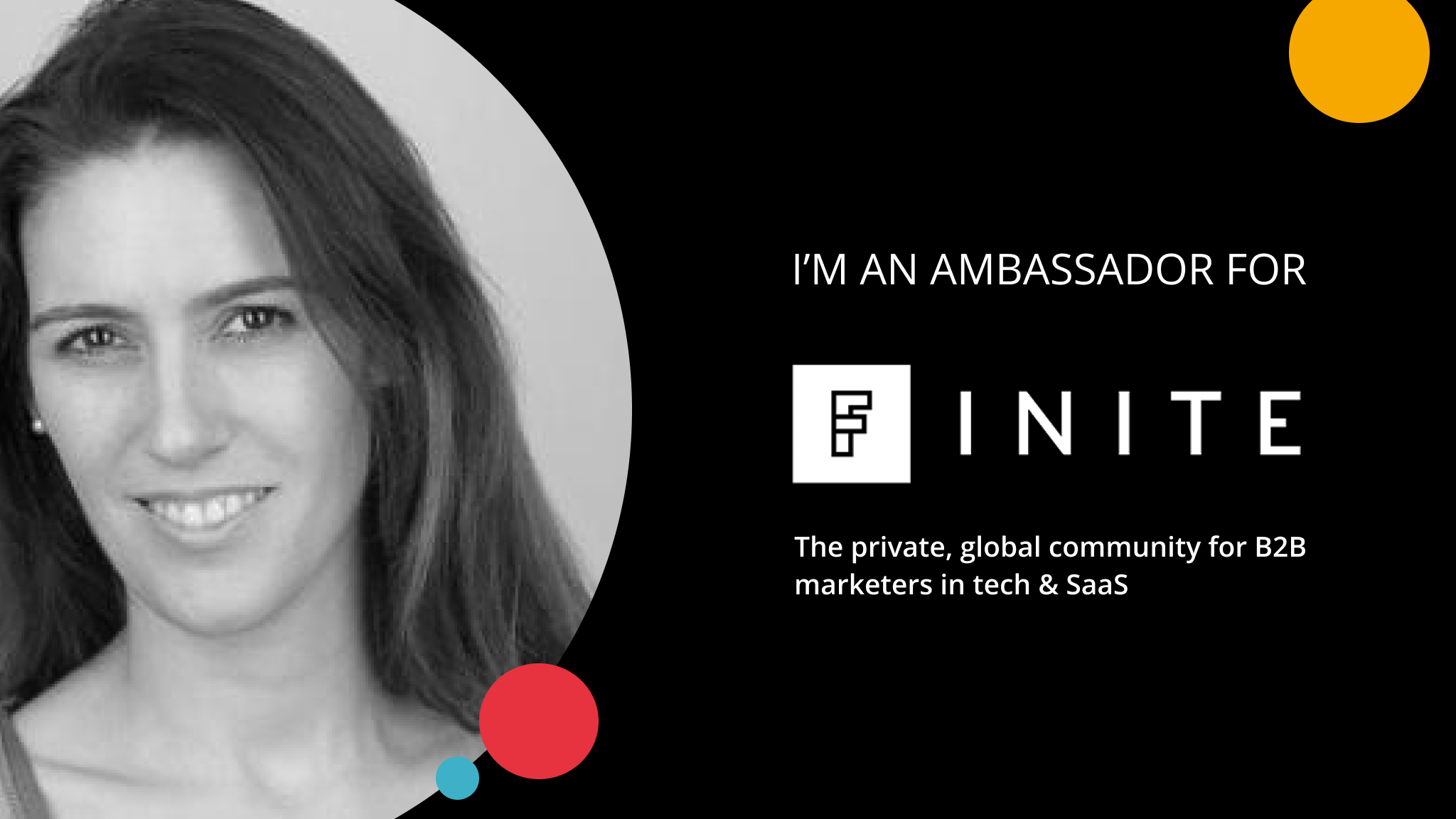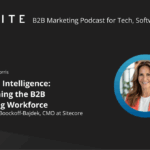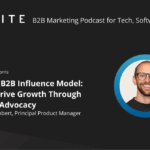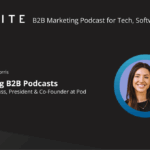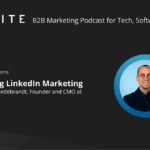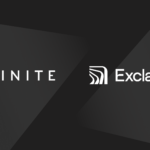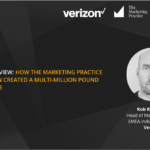Introducing Ana Williams, one of six FINITE Ambassadors representing key topics in B2B tech and SaaS marketing. Our FINITE Ambassadors are set to support FINITE members, run events and pave the way for their chosen specialisms.
As Global Director, Growth Marketing at Airship, Ana has a very busy schedule, so we’re so grateful to her for taking the time to get involved in FINITE and represent our members.
If you’d like to get to know more about Ana, her experience in B2B tech marketing, and her insights into demand generation for small-medium organisations, keep reading for her interview!
Hey Ana, thanks for joining us as a FINITE Ambassador! To kick off the interview, could you please share about your background in marketing and your current role?
I have been working in B2B marketing for the last 14 years, mainly in the technology space for SaaS organisations within MarTech. I started my career path as a marketing generalist and have specialised in leading EMEA, and sometimes APAC marketing, working for American organisations.
At my current company, I have been promoted to a global role so I am now Airship’s Global Marketing Director. Lead generation has been a key part of my role across the different companies I’ve worked for and I have been managing that through a combination of different channels from email campaigns, to paid media, social media, event marketing, webinars, SEO, ABM and more.
Being a marketing generalist leading a team of people that are specialised in different aspects of marketing means you need to have a good knowledge of all the channels to be able to understand their performance and be able to recommend changes. And more than that, you need to work closely with the brand and PR teams to ensure the activities conducted from a demand gen side of things also support the right level of awareness while addressing the company’s position in the market, taking in consideration the cultural changes and needs of the different countries.
Being a marketing generalist is an ever evolving role and incredibly rewarding and I feel incredibly lucky for taking on this path for my career.
Inspiring stuff! What are the most common challenges you see B2B tech marketers facing at the moment?
Standing out from the crowded and heavily competitive MarTech space is certainly a challenge, particularly when there are so many companies with really high quality technology out there.
Sure, there are always a few differences from the technology perspective but any thriving technology company always has the next new exciting innovation coming up in their roadmap making it hard for buyers to make a decision simply based on the tech capabilities.
So this is where aspects like branding and relationship building with the key target accounts are so important, which is part of why, nowadays, you see technology companies being bolder with their statements and their marketing approach, just like a B2C company would. And this is also why you see so many tech companies focused on nailing their ABM strategy, which to be fair, can still be so many different things for so many organisations.
Every time I talk with a fellow marketer about ABM they seem to have a different approach to how they do it, so I believe that account based marketing and branding strategy for technology companies are certainly some of the key challenges everyone is looking to solve at the moment.
You’ve nailed some fundamental points of B2B tech marketing in 2022, that’s for sure! Where do you see demand generation in SMBs headed next?
For technology businesses to continue filling their pipeline with high quality opportunities, the demand gen, branding and ABM teams trio will need to work really closely together to deliver the right level of interest from the market.
Demand gen may bring in the leads, but if those leads don’t feel value and trust from the brand, and if they don’t feel the relevance the technology can provide to their specific company and needs, which the account-based marketing team can help prove, they will end up going to the tech competitor that can do that.
So it’s not just about collaborating together, it’s about building a strategy together from scratch that can truly solidify and build a great experience for the customer delivered by these three combined teams.
Some great points! I’m wondering what’s your favourite tool at the moment?
We’ve been using Mutiny recently for our web personalisation and it’s been great to see how it can provide us with so many different possibilities to easily make changes to the website so different accounts can see what is most relevant to them when they land on our website. I still need to work with it a lot more to fully uncover all the capabilities but it’s certainly the tool I’m most excited about at the moment.
Cool, I’ll check it out. To finish the interview, tell us a fun fact about you…
I’m originally from Portugal and, after my Erasmus experience in London, I just wanted to work abroad anywhere in the world to continue learning about new cultures and new places. So as I was coming to London for the summer after I graduated to visit an old Erasmus friend I decided to apply to this graduate scheme while here. I managed to get an interview and got through to the second stage. This was on a Friday in August and I was interviewing for the round of graduates starting in November.
I said I was looking for something more immediate, and they liked me so much that they asked if I wanted to start already in the first intake of graduates that was starting that Monday. I didn’t have to think twice so I got that job on the spot, went back to Portugal that night and informed my parents I was moving away from the country the day after.
It was a bit of a shock to everyone as I didn’t even have the time to say goodbye to my friends and family properly but I came to London to start that role in 2005 and have been here ever since.
